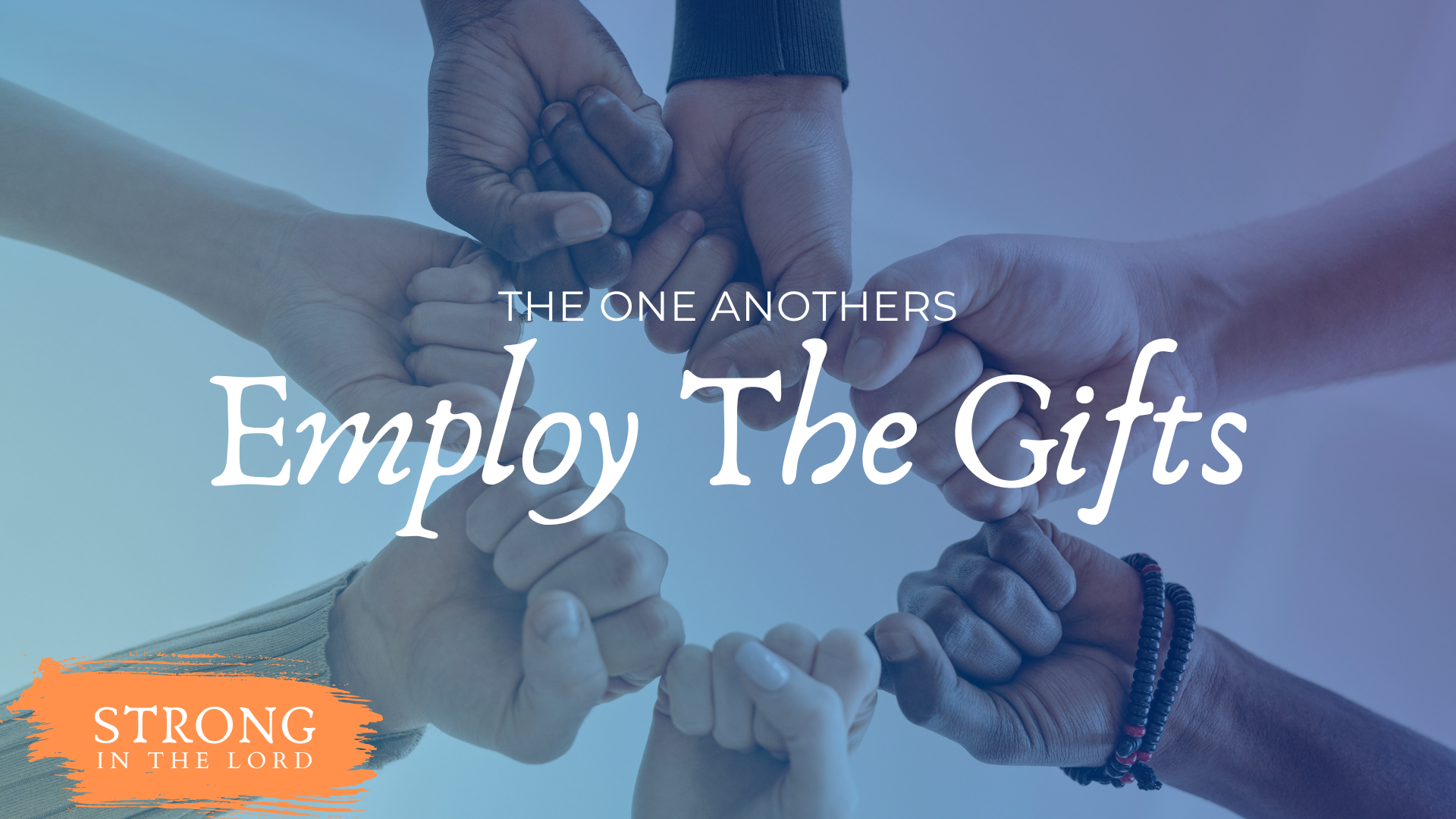
Encourage One Another
From time to time we take a look at the “one another” commands in Bible. They given to us so we can know how to properly relate to each other in the church and so we can be built up, others can be built up, and our church can thrive in the love of God. Today’s command is given several places in the New Testament, but we’ll start with Hebrews 3:13.
Hebrews 3:13 – But encourage each other daily, while it is still called today, so that none of you is hardened by sin’s deception.
To encourage means to comfort, to exhort, to cheer. To urge or make an appeal to someone.[1] It implies calling on the Lord in prayer. And it’s something we do for one another right up close – the term means to call to one’s side.[2]
We need encouragement because the world is a difficult place, full of darkness and the ruin of sin. We face discouragement, tragedy, suffering, sorrow, pressures, disappointments, setbacks, and loss. Our spiritual enemies try day by day to brow beat us into submission – trying to convince us that God is not going to help us, not going to deliver us, that our situation is hopeless. The sin nature within us tries moment by moment to deceive us into thinking that we should give into temptation – that it doesn’t matter if we really walk with God and carry out His commands.
All of us, need encouragement. Hebrews says we need it on a daily basis. We need the cheering, comforting, exhortation of the truth. And the Holy Spirit, Who is our Comforter, and the term there comes from the same word that ‘encourage’ does in Hebrews 3, He sends us out to be agents of encouragement to one another.
Paul wrote in both Romans and 1 Thessalonians that we can give and receive encouragement through the Word of God.[3] The hope and endurance we need to live in this world comes through the Scriptures, which comforts us with the truth of Who God is and what He is doing.
Some Christians have the gift of encouragement.[4] We are not only thankful for you, we recognize your work in the Church is absolutely essential. But all of us are called to encourage one another.
On a practical level, we do this by praying for each other, by reminding each other of God’s plan and His faithfulness, and that His plan for our lives and this world is unstoppable. To bring consolation by reminding each other that the darkness will not overcome the Light.
This past week was particularly discouraging for our nation. Aside from the horrific, shocking, public assassination of Charlie Kirk, it seemed like there was a constant flood of horrible news. We are constantly inundated by these stories of violence, images of suffering, problems escalating as sin runs rampant in our culture, in our cities, and around the world.
This is exactly where encouragement comes in. It is not time to despair. It’s not time start hating. We must come together, side by side, to remind ourselves that our faith in Christ will drive out fear. The Christian life is never hopeless. Our God is the God Who encourages the downcast.[5] And we are reminded that His love and power are the same whether you live under Solomon or Nebuchadnezzar, whether you’re worshiping in Jerusalem or enslaved in Egypt, whether you’re with Jesus feeding the 5,000 or in dungeon stocks of Philippi. Whether you win or lose an election. Whether the news is good or bad. Our Lord’s good work cannot be thwarted by scoffers or liars or killers. He has sent us out in joy and to proclaim the Good News of His victory.
Our world is simmering with godless hate. You and I have been called to a bold and vocal hope. To be a people who do not give in to the deception around us and become hard-hearted like so many others, but to be those who are strengthened, consoled, called to participate in Christ’s love. So, in the face of the troubles and sorrows around us, God’s Word sends this comfort: Let not your hearts be troubled. Let not your hearts become hard with hate or pessimism. Believe in Christ. Believe in the power of His Gospel, the continual outpouring of His grace. He will not disappoint us. He will not fail. And one day He will make every sad thing untrue. All will be made new. The day is coming!

